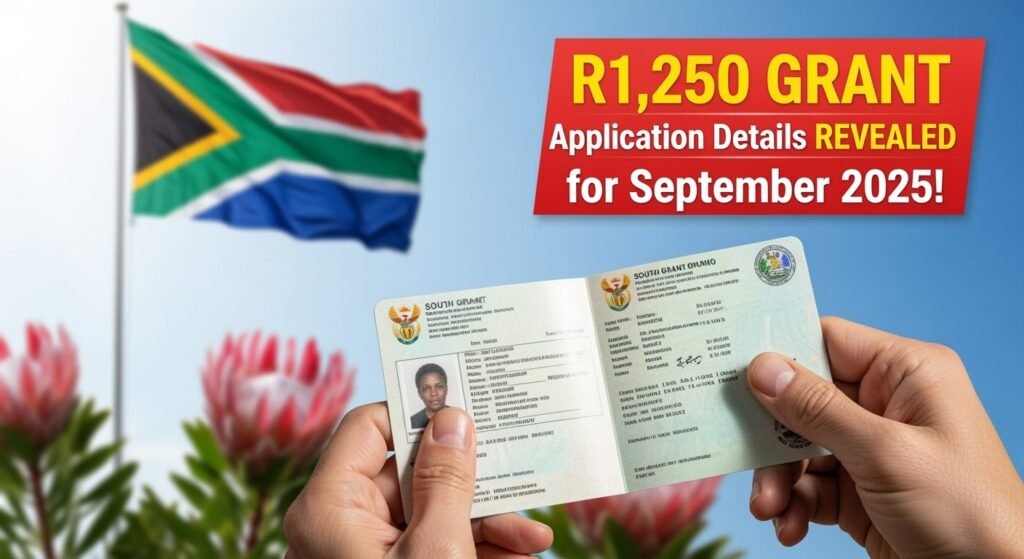Foster Child Grant application process: I’m excited to share important news for foster families across South Africa. The Foster Child Grant will increase to R1,250 in September 2025, providing much-needed financial support to those caring for children in need. This grant aims to assist foster parents with the costs of raising children who have been placed in their care through court orders. As someone who regularly covers social assistance programs, I understand how vital this information is for families planning their finances. Have you been wondering about the application process for this essential support? Today, I’ll walk you through everything you need to know about qualifying for and applying for the Foster Child Grant.

What Is The Foster Child Grant?
The Foster Child Grant is a monthly payment provided by the South African Social Security Agency (SASSA) to citizens, permanent residents, or refugees who are legally fostering a child. The grant is specifically designed to support children who have been placed in foster care through a court order. In September 2025, this grant will be R1,250 per month per foster child, representing the government’s commitment to supporting vulnerable children and their caregivers.
The primary purpose of this grant is to assist foster parents with the financial responsibilities of raising a child who is not biologically theirs. This includes covering essential expenses such as food, clothing, education, and healthcare. It’s important to understand that this grant is different from other child support grants, as it specifically addresses the unique circumstances of foster care arrangements and requires a valid court order to qualify.
Why Apply For The Foster Child Grant?
Applying for the Foster Child Grant is crucial if you’re a foster parent facing the financial challenges of raising a child. The monthly payment of R1,250 (effective September 2025) can significantly ease the burden of day-to-day expenses. This grant acknowledges the valuable service foster parents provide to society by offering homes to children who might otherwise be institutionalized.
Beyond the financial aspect, applying for the Foster Child Grant also connects you to the broader social support system. Once registered, you may find it easier to access other services and support programs designed for foster families. Additionally, the application process helps ensure that all foster care arrangements are properly documented and monitored, which ultimately protects the welfare of the children involved. Wouldn’t it be reassuring to know that you have this support as you provide a stable home for a child in need?
How To Apply For The Foster Child Grant
The application process for the Foster Child Grant is straightforward but requires specific documentation. To apply, you must visit your nearest SASSA office in person. Before heading there, ensure you have all the necessary documents to avoid multiple trips. The foster parent must bring their South African ID book or valid identification document, along with the foster child’s birth certificate.
Most importantly, you must provide the court order that officially placed the child in your care. Without this legal document, your application cannot proceed. SASSA officials will also require proof of your residential address, which can be in the form of a utility bill or an affidavit from local authorities. The application form will be provided at the SASSA office, where officials will assist you in completing it correctly. Remember that the Foster Child Grant application process requires no payment, and you should report anyone who asks for money to process your application.
| Required Document | Purpose |
|---|---|
| ID Document | Verify foster parent’s identity |
| Child’s Birth Certificate | Confirm child’s identity and age |
| Court Order | Prove legal foster care status |
When Will Payments Begin After Application?
After submitting your Foster Child Grant application, SASSA typically takes 3-5 working days to process it. However, the actual time may vary depending on the volume of applications being processed. Once approved, payments usually begin within the next payment cycle. SASSA makes payments on specific days each month, determined by the last three digits of your ID number.
It’s important to note that the Foster Child Grant is paid from the date of application, not from the date of the court order. This means there’s no backpay to when the child was first placed in your care, so I recommend applying as soon as possible after receiving the court order. The R1,250 monthly payment (effective September 2025) will continue until the child turns 18 or the foster care arrangement ends. SASSA conducts regular reviews to ensure the child is still in your care, so be prepared to provide updated information when requested.
Real-Life Application Experience
I recently spoke with Mrs. Thembisa Nkosi from Soweto, who successfully applied for the Foster Child Grant for her nephew after her sister passed away. “The process was simpler than I expected,” she shared. “I brought my ID, my nephew’s birth certificate, and the court order to the SASSA office in Jabulani. The officials were helpful and guided me through filling out the forms. Within two weeks, I received confirmation that my application was approved, and the first payment arrived the following month. The grant has been essential in helping me provide for my nephew’s school needs and daily care.”
The Foster Child Grant application process may seem daunting at first, but with the right documentation and preparation, it can be navigated successfully. If you’re a foster parent or considering becoming one, I encourage you to take advantage of this support system. The increased grant amount of R1,250 coming in September 2025 reflects the government’s recognition of the vital role foster parents play in providing loving homes for vulnerable children. Remember, this grant is your entitlement as a foster parent, designed to help you give the best possible care to the child in your protection.



